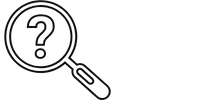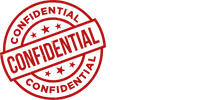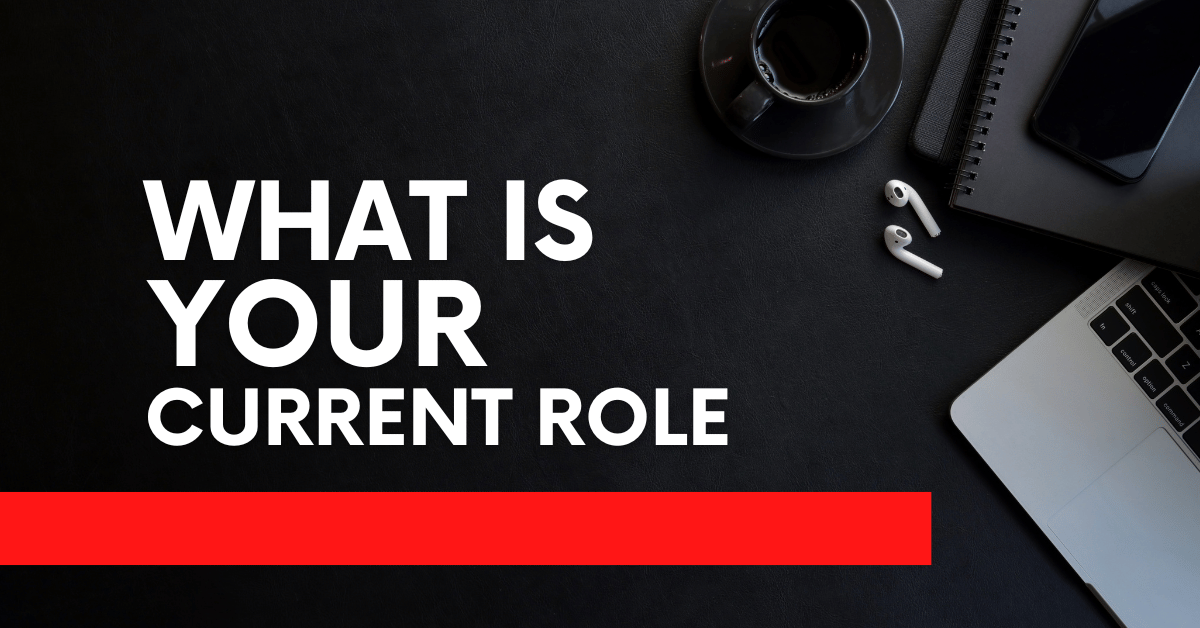Have you ever been in an interview and stumbled when asked, “What is your current role?”
You’re not alone.
Many candidates freeze up during a job interview, unsure of how to present their daily duties in a way that resonates with potential employers.
Let’s break down why this question is crucial and how to tackle it effectively.
- Why Employers Ask, “What is Your Current Role?”
- How to Answer, “What is Your Current Role?”
- Leveraging Your Answer for Future Questions
- Addressing Potential Challenges
- Tailoring Your Answer to Different Interview Formats
- Addressing Career Gaps
- Discussing Remote Work Experience
- Addressing Company Confidentiality
- Handling Difficult Questions
- Cultural Fit and Soft Skills
- Example Answers to Help You Answer, “What is Your Current Role?”
- Conclusion
- FAQs

Why Employers Ask, “What is Your Current Role?”
Understanding the significance of this question is the first step. Employers ask about your current role for several reasons:
- Assess Fit: They want to see if your current responsibilities align with the job you’re applying for.
- Gauge Experience: Your answer helps them understand the depth and breadth of your experience.
- Evaluate Communication: It shows how well you can articulate your duties and achievements to the hiring manager.
They also want to see how your current role prepares you for the new job you are applying for.
How To Describe Your Current Job Responsibilities
Describing your current job responsibilities effectively can make or break your interview. Here’s how to do it like a pro:
- Be Specific: Avoid vague statements. Clearly outline your daily tasks.
- Highlight Achievements: Don’t just list your current job duties. Talk about what you’ve accomplished.
- Use Numbers: Quantify your impact with statistics and results.

How to Answer, “What is Your Current Role?”
When you’re asked about your current role, it’s not just about what you do; it’s about how you convey it. Here’s a blueprint:
- Start with the Basics: Mention your current position, job title, and the company you work for.
- Detail Your Responsibilities: Use bullet points to list your main duties.
- Highlight Your Achievements: Focus on accomplishments that are relevant to the job you’re applying for.
- Keep It Relevant: Tailor your answer to the job description of the role you’re interviewing for.
Things to Exclude
Just as important as what to include is knowing what to leave out. Here’s a guide to keep your answer focused and impactful:
- Overly Vague Descriptions: Be specific and detailed. General statements don’t convey the full scope of your abilities.
- Irrelevant Details: Stick to what matters for the job at hand. Irrelevant information can distract from your key points.
- Jargon and Technical Terms: Avoid using language that the interviewer might not understand. Keep it simple and clear.

Leveraging Your Answer for Future Questions
Your response to “What is your current role?” can set the stage for other common interview questions. Here’s how to use your answer strategically:
- “Tell me about yourself”: Your current role description can serve as a starting point for this broader question. Expand on your professional journey, highlighting how your current position fits into your career narrative.
- “What are your strengths?”: Use examples from your current role to illustrate your key strengths. This creates a seamless connection between your abilities and real-world application.
- “Where do you see yourself in five years?”: Your description of your current role can help frame your career aspirations. Discuss how your current responsibilities are preparing you for future growth.
- “Why should we hire you?”: Your current role description showcases your relevant experience. Use this as a foundation to explain how your skills and achievements make you an ideal candidate for the new position.
Tips for Success
To ensure your answer is polished and impressive, keep these tips in mind. They will help you deliver a strong, confident response:
- Be Concise: Keep your answers clear and to the point. Avoid long-winded explanations that can lose the interviewer’s interest.
- Emphasize Results: Focus on what you’ve achieved. Use quantifiable results to showcase your success.
- Practice Your Delivery: Rehearse your answer to sound natural and confident. Practice makes perfect.
- Interview Preparation: Spend time preparing for common questions and practice your answers to ensure a smooth delivery.
Addressing Potential Challenges
When answering questions about your current role, you may encounter some challenges. Here’s how to navigate them:
- Transitioning careers: If you’re switching industries, focus on transferable skills and experiences that align with the new role. Highlight projects or responsibilities that demonstrate your adaptability and willingness to learn.
- Limited experience: For those early in their careers, emphasize your eagerness to learn and grow. Discuss internships, academic projects, or volunteer work that showcase relevant skills.
- Overqualification: If you’re applying for a role that seems “below” your current position, focus on how your experience can add value to the new role and express your genuine interest in the position.
- Unemployment: If you’re currently unemployed, briefly explain your situation and shift the focus to your most recent role and how it prepared you for the position you’re seeking.
Tailoring Your Answer to Different Interview Formats
Your approach to answering “What is your current role?” may vary depending on the interview format:
- Phone interviews: Be concise and clear, as you lack visual cues. Focus on your top 2-3 responsibilities and achievements.
- Video interviews: Maintain eye contact with the camera and use hand gestures sparingly. Have a brief written summary nearby for reference.
- In-person interviews: Use body language to convey confidence and enthusiasm. Be prepared to elaborate on points if the interviewer shows interest.
- Panel interviews: Address your answer to the person who asked the question but make eye contact with all panel members as you speak.

Addressing Career Gaps
If you have gaps in your employment history, be prepared to address them when discussing your current role:
- Be honest: Briefly explain the reason for the gap (e.g., further education, family responsibilities, health issues).
- Focus on growth: Highlight any skills or experiences gained during the gap that are relevant to the job.
- Show enthusiasm: Express your eagerness to return to work and contribute to the new role.
- Keep it positive: Avoid dwelling on negative aspects of your career gap or previous employment.
Discussing Remote Work Experience
With the increasing prevalence of remote work, you may need to address how you’ve adapted to this environment:
- Highlight self-motivation: Discuss how you’ve maintained productivity and met deadlines while working independently.
- Emphasize communication skills: Describe how you’ve effectively collaborated with team members using digital tools.
- Mention time management: Explain strategies you’ve used to balance work and personal life in a home office setting.
- Discuss any remote-specific achievements: For example, leading a successful virtual project or implementing new remote work processes.

Addressing Company Confidentiality
When discussing your current role, it’s crucial to maintain professional integrity:
- Respect confidentiality agreements: Don’t share proprietary information or trade secrets.
- Use general terms: Discuss your achievements without revealing sensitive details about clients or projects.
- Focus on your contributions: Emphasize your skills and impact rather than specific company information.
- Be diplomatic: If asked about challenges in your current role, frame your response positively and focus on how you’ve grown from these experiences.
Handling Difficult Questions
Sometimes, interviewers may ask challenging follow-up questions about your current role:
- “Why are you looking to leave your current position?”: Focus on growth opportunities and avoid speaking negatively about your current employer.
- “What’s the biggest challenge in your current role?”: Discuss a challenge you’ve successfully overcome or are actively working to improve.
- “How does your current company compare to ours?”: Emphasize your interest in the new company without disparaging your current employer.
- “Are you overqualified for this position?”: Explain how your experience will benefit the new role and express genuine interest in the position.

Cultural Fit and Soft Skills
When describing your current role, don’t forget to highlight soft skills and cultural fit:
- Teamwork: Provide examples of successful collaborations or cross-functional projects.
- Leadership: Even if you’re not in a management position, discuss instances where you’ve taken initiative or mentored colleagues.
- Adaptability: Describe how you’ve navigated change or uncertainty in your current role.
- Problem-solving: Share examples of creative solutions you’ve implemented to address workplace challenges.

Example Answers to Help You Answer, “What is Your Current Role?”
Let’s look at some tailored examples for different roles to illustrate how to craft a solid answer.
Each example should be treated as a success story, highlighting your achievements and the impact you’ve made in your current role.
Commodities Trader
“Currently, I work as a Commodities Trader at XYZ Corp.
My primary responsibilities include analyzing market trends, executing trades, and managing a portfolio of commodities.
Recently, I developed a new trading strategy that increased our portfolio returns by 15% over the last quarter.”
Why This Is a Great Answer: This answer is effective because it clearly outlines the candidate’s core responsibilities, such as analyzing trends and executing trades, which are directly relevant to the job. Additionally, it highlights a significant, quantifiable achievement—a 15% increase in portfolio returns—demonstrating the candidate’s impact and success in their role.
Sales Representative
“As a Sales Representative at ABC Inc., I lead a team of 15+ sales associates.
My day-to-day involves strategizing sales approaches, managing client relationships, and driving revenue growth.
Last year, I implemented a sales campaign that boosted our quarterly sales by 20%.”
Why This Is a Great Answer: This response showcases leadership and strategic thinking by emphasizing team management and sales strategy development. The candidate also highlights a tangible success—a 20% increase in quarterly sales—which provides concrete evidence of their effectiveness and ability to drive results.
Marketing Manager
“As a Marketing Manager at Digital Dynamics, I lead a team of 10 marketing specialists across various channels including social media, content marketing, and email campaigns.
My primary responsibilities include developing and implementing comprehensive marketing strategies, analyzing market trends, and overseeing our brand’s digital presence.
Recently, I spearheaded a multi-channel campaign that increased our customer engagement by 40% and led to a 25% boost in quarterly sales.”
Why This Is a Great Answer: This response demonstrates leadership skills, strategic thinking, and a data-driven approach. The candidate highlights their ability to manage diverse marketing channels and provides specific, quantifiable results that showcase their impact on the company’s bottom line.
Human Resources Specialist
“In my current role as an HR Specialist at TechCorp, I’m responsible for full-cycle recruiting, employee relations, and benefits administration for a company of 500+ employees.
I’ve implemented a new applicant tracking system that reduced our time-to-hire by 30% and improved candidate experience scores by 25%.
Additionally, I’ve developed and facilitated diversity and inclusion training programs that have been completed by 100% of our staff, contributing to a 20% increase in employee satisfaction scores.”
This answer showcases a broad range of HR responsibilities and highlights specific achievements in recruiting efficiency and employee satisfaction. The candidate demonstrates their ability to implement new systems and initiatives that have measurable positive impacts on the organization.
Environmental Scientist
“As an Environmental Scientist at EcoSolutions, my primary focus is on conducting environmental impact assessments for large-scale industrial projects.
I lead a team of 5 researchers in collecting and analyzing data on air and water quality, biodiversity, and soil contamination. In the past year, I’ve developed a new methodology for assessing long-term ecological impacts that has been adopted as the industry standard by our state’s environmental protection agency.
This new approach has allowed us to identify potential environmental risks 25% more accurately, leading to more sustainable project designs.”
This response effectively communicates the candidate’s technical expertise and leadership abilities. It highlights a significant achievement – developing a new industry-standard methodology – and quantifies the improvement in accuracy, demonstrating the candidate’s impact on both their organization and the broader field.
Financial Analyst
“In my role as a Financial Analyst at InvestCo, I’m responsible for evaluating investment opportunities, conducting financial modeling, and preparing reports for senior management.
I specialize in the tech sector and manage a portfolio of investments worth over $100 million.
Recently, I developed a machine learning algorithm to enhance our risk assessment process, which has improved our investment accuracy by 15% and contributed to a 10% increase in our overall portfolio performance over the past quarter.”
Why This Is a Great Answer: This answer effectively conveys the candidate’s technical skills in finance and their ability to leverage technology to improve processes. By mentioning the size of the portfolio, they manage and providing specific performance improvements, the candidate demonstrates their significant responsibilities and measurable impact on the company’s financial success.
Customer Service Manager
“In my role as a Customer Service Manager at ServiceNow, I oversee a team of 30+ representatives.
I focus on improving customer service processes and ensuring high satisfaction rates.
Under my leadership, we reduced average resolution times by 25%.”
Why This Is a Great Answer: This response highlights the candidate’s leadership and process improvement skills. The 25% reduction in resolution times is a clear, quantifiable achievement that illustrates the candidate’s ability to enhance operational efficiency and customer satisfaction.
Project Manager
“As a Project Manager at Enterprise Solutions, I manage multiple client projects, ensuring they are completed on time and within budget.
I recently spearheaded a project that saved the company $500,000 in operational costs.”
Why This Is a Great Answer: This answer effectively conveys the candidate’s project management skills and their focus on delivering projects within budget. The $500,000 cost saving is a significant achievement that showcases the candidate’s ability to generate substantial value for their employer.
Customer Service Representative
“I’m a Customer Service Representative at HelpDesk Corp.
My responsibilities include handling customer inquiries, resolving issues, and maintaining customer satisfaction.
Last month, I achieved a 98% customer satisfaction rating, surpassing our team’s target.”
Why This Is a Great Answer: This response clearly outlines the candidate’s key responsibilities and emphasizes their commitment to customer satisfaction. The 98% satisfaction rating is a quantifiable success that demonstrates the candidate’s effectiveness in their role.
Conclusion
Understanding how to answer, “What is your current role?” can significantly impact your interview performance. By breaking down your responsibilities, highlighting achievements, and tailoring your response to the job description, you present yourself as a strong candidate.
Mastering the art of describing your current role is a crucial skill in the job search process.
By following these guidelines and practicing your response, you’ll be well-equipped to make a strong impression in your next interview.
Remember to stay authentic, focus on relevant experiences, and showcase your unique value proposition.
As you prepare for your interview, consider seeking feedback from trusted colleagues or mentors.
They may provide valuable insights into your strengths and areas for improvement.
Additionally, stay informed about industry trends and the specific company you’re interviewing with, as this knowledge can help you tailor your response even further.
Ultimately, your goal is to leave the interviewer with a clear understanding of your current responsibilities, achievements, and potential to excel in the new role.
With thorough preparation and a confident delivery, you’ll be well on your way to landing your next great opportunity.
Remember, your goal is to show how your current role has prepared you for the new position. Keep it real, keep it fresh, and keep it engaging. Good luck!



